Shabbat in Israel
Shabbat, put simply, is the centrepiece of Jewish life, wherever you live around the globe. It is a day of rest, occuring every week between Friday evening and Saturday evening, and although it is not technically a Jewish festival, it has great importance, because it is considered to be a holy time for religious Jews. For non-religious Jews, shabbat may not be celebrated as strictly, but it is still commonly observed and, for many, a lot of preparations are made to welcome it, especially when it comes to preparing meals.
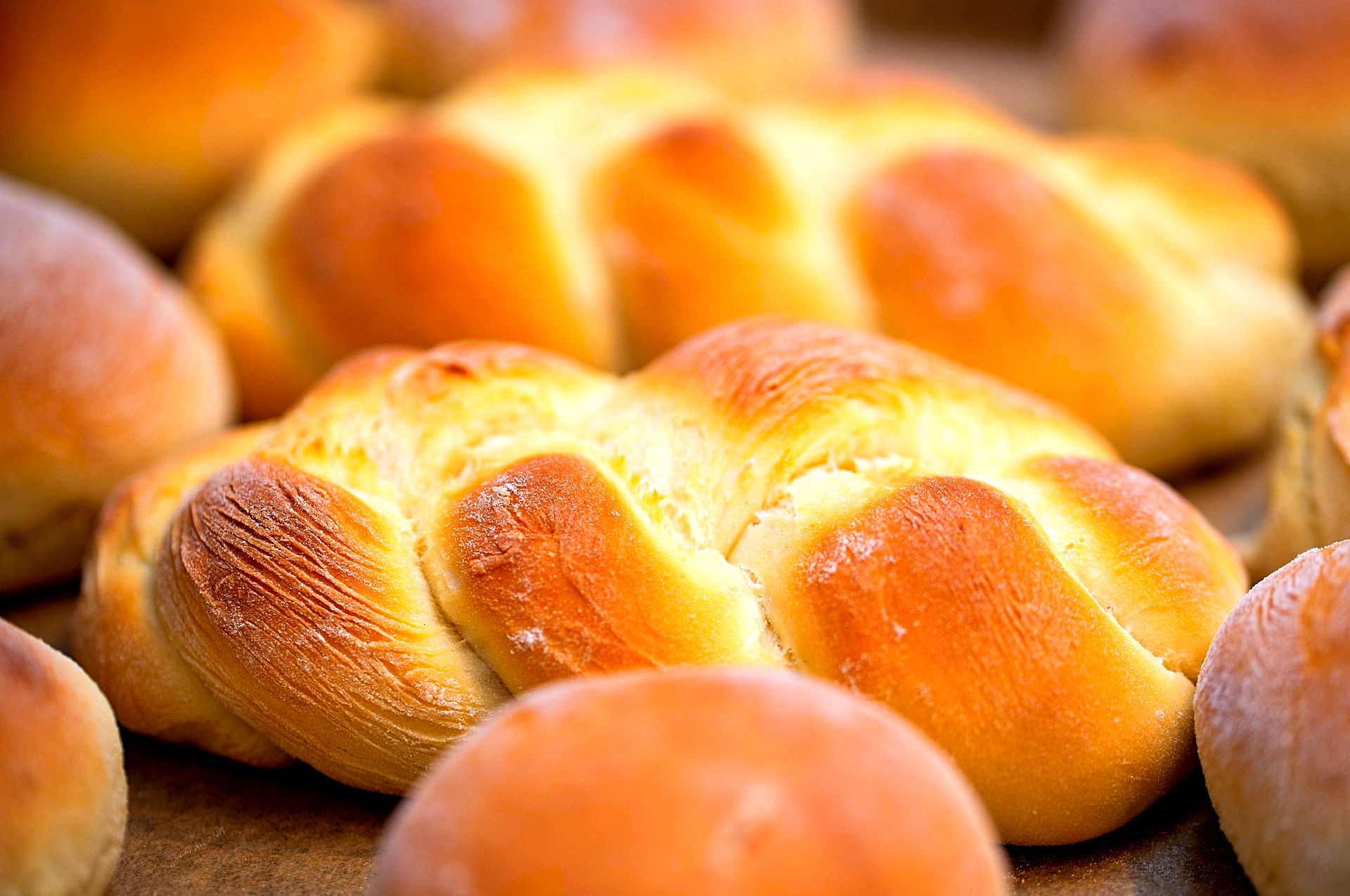
Challah bread for Shabbat. Photo by Evgeni Tcherkasski on Unsplash
What is Shabbat?
Actually, some Jewish sages have even argued that the observance of the Jewish sabbath is the most important thing a Jew can do - more important than fasting on Yom Kippur (the Day of Atonement) even. Shabbat literally means, ‘he rested’ in Hebrew and many rabbis have argued that without this ‘enforced’ period of rest each week, no creativity would be possible. And however seriously you take religion, the fact is there is a great purpose to a day of rest - it really makes sure that we don’t burn out.
Why is Shabbat such an important day in Jewish law?
Shabbat is incredibly important in Judaism because it commemorates God’s creation of the universe, as described in the Torah (the first five books of the Hebrew Bible), one of the most sacred Jewish texts). In the second of these, Exodus, we learn that Shabbat is a reminder of the day God rested, after six days of hard work. “Six days you shall work but on the seventh day you shall rest.” For this reason, Shabbat is considered a day of holiness and peace, hence the term ‘Shabbat shalom’ (‘a peaceful sabbath’) that Jews say to each other, in the lead-up to it.
Shabbat also commemorates the events of the Exodus, when Moses led the Israelites out of Egypt, freeing them from slavery under the cruel Pharoah. Indeed, Shabbat is referred to in holy books as a ‘Queen’ whose presence graces every home on this day. Friday night services include psalms and the haunting melody of ‘Lecha Dodi’ (‘Come my Beloved’) in which Shabbat is referred to as a bride.
Shabbat, therefore, is really a chance to stand back from the chaos of daily life and give pause before welcoming this ‘Queen’. And this is why many Jews make such an effort in their preparations for the day - wearing fine clothing, eating special foods, and ensuring that their homes are sparkling clean. After all, who would welcome royalty any other way? According to the Torah, the sabbath is a delight and if Jews observe it diligently, they will surely be afforded a place in the world to come.
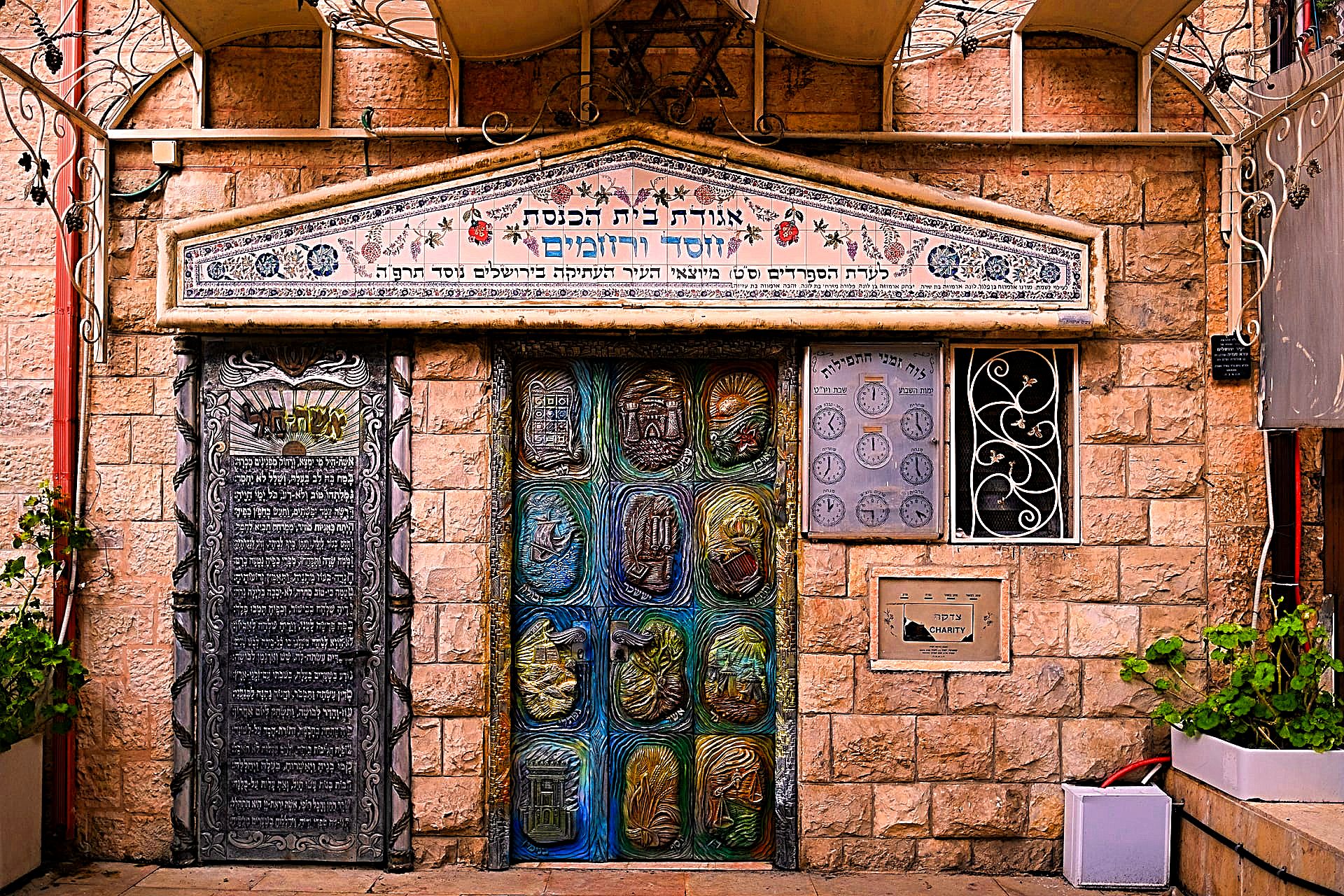
Entry of a synagogue in Jerusalem. Photo by Levi Meir Clancy on Unsplash
When does Shabbat begin and end, both in Israel and around the world?
The Jewish calendar is not solar, but solar-lunar, which means that all religious holidays/festivals in Israel and around the world begin at sunset. This is also the case with Shabbat, which begins at sunset on Friday evening and lasts until Saturday evening when three stars in the sky are visible. In terms of the exact time Shabbat begins, religious Jews tend to consult a calendar, according to where they are in the world, which gives the precise time of beginning and end (by the minute).
Are there special rituals to welcome and say goodbye to Shabbat?
Yes - and the most important is Shabbat candle lighting. Traditionally, it is the woman of the house who does this, around 18-22 minutes before Shabbat officially begins, as a way of ushering in this holy day. After the candles are lit, she will close her eyes, and recite a special prayer. Once this has been done, Shabbat has officially begun and no work can be carried out until its conclusion. (For more about what constitutes work, see below). After a short Friday night service, there will be blessings before dinner begins, made over two loaves of bread and a goblet of wine.
The following evening, just before Shabbat ends, many Jews observe the ritual of ‘havdalah’. This means ‘separation’ in the Hebrew language, and is a way of distinguishing the holiness of this day from the rest of the week. Using wine (or grape juice), spices (often kept in a box), and a braided candle, the ritual concludes with the singing of ‘Eliyahu haNavi’ (‘Elijah the Prophet’), who Jews believe will usher in the age of redemption. Finally, everyone wishes each other ‘Shavua tov’ which means “May you have a good week to come.” Take a look at this fun video entitled ‘How to Havdalah’ to get a better idea of what goes on!
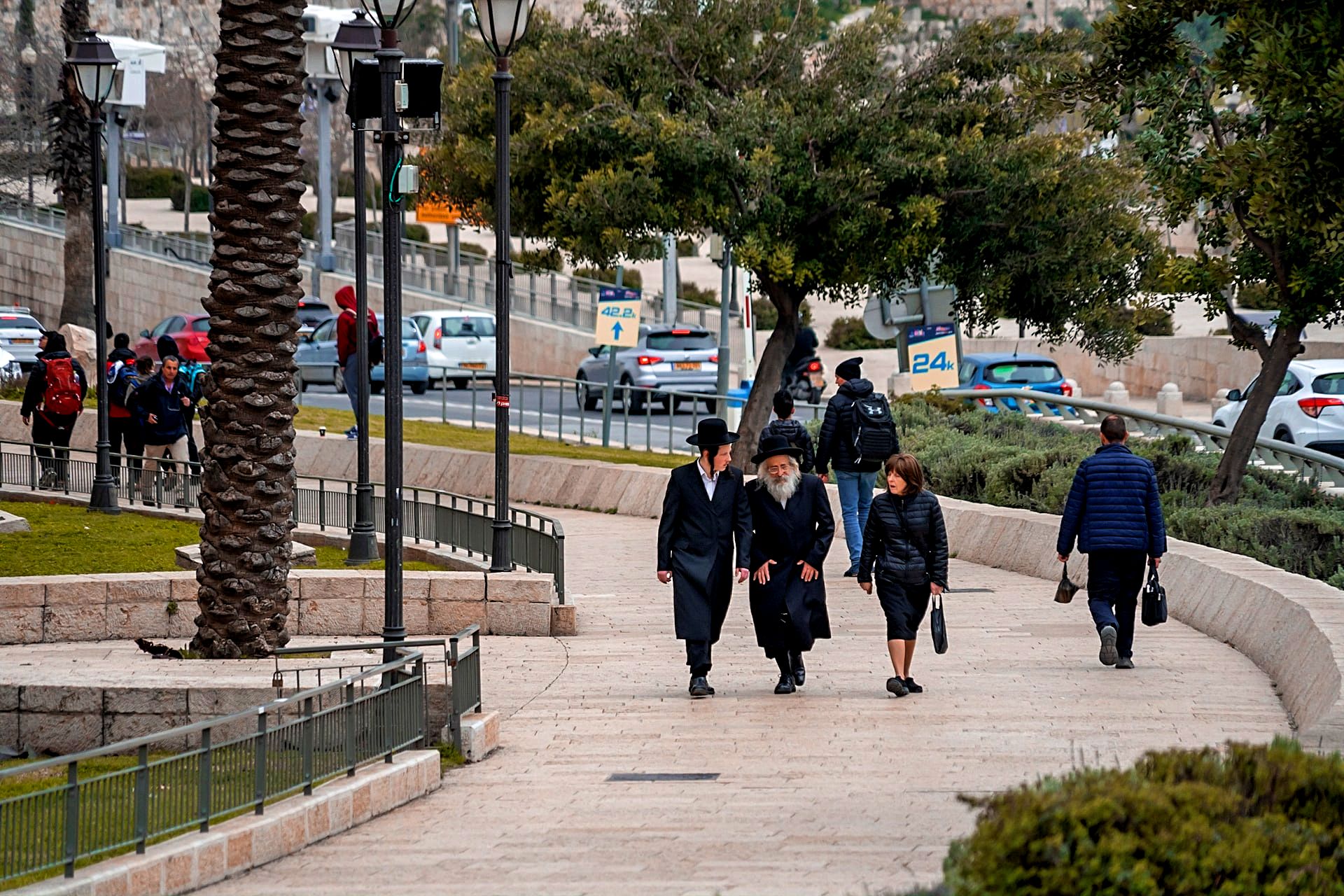
Family of religious Jews dressed in black walks through the Old City of Jerusalem. Photo by Maayan Nemanov on Unsplash
What is a typical ‘Friday night’ Shabbat meal?
Whilst there’s not one ‘typical’ food that’s served on Shabbat (because Jews from around the world have different culinary traditions) there are a few ‘tried and tested’ dishes that you might see on a Friday night table. You’ll always see challah (which is a braided semi-sweet bread) and sweet (‘kiddush’) wine, over which blessings are made. In the homes of Ashkenazi Jews (who originated from Eastern European), you’ll often be served delicacies such as chopped liver, gefilte fish, kugel, chicken soup, and cholent (a slow-cooked stew).
In Sephardic homes (Jews who came from North Africa/Asia/Spain) you might be served stuffed vegetables, vine leaves, couscous, kibbeh (croquettes filled with lamb or minced beef), and baked cod and tahini cookies for dessert. Because of Jewish dietary laws, if you are served meat at a meal then there will be no dairy on the table…
If you are invited to dinner, therefore, it’s good to check ahead to see if your hosts keep kosher (and if they are serving a meat meal, not to bring a dessert made from cream or butter…!) You can also play it safe by bringing flowers or a bottle of wine (most wines served in stores in Israel are kosher but you can always ask beforehand…)

Freshly baked challah bread. Photo courtesy of www.freepik.com
How do Jews celebrate Shabbat in Israel?
This is a good question and very much depends on how religious the family is. Although Israel is a ‘Jewish state’ and Jews are the majority of its population, not all Jews believe in God. However, it’s fair to say that it’s very traditional to attend a family dinner on Friday night. In a religious home, there will be singing and prayers; in a non-religious home, the kids may eat with their parents and then go out to a cafe or bar for the night!
One thing that is for sure, however, is that from Friday night to Saturday night, it’s a time to relax. Religious Jews will attend prayer services at a synagogue on Shabbat morning, eat a lunchtime meal, and then a ‘seudah shlishit’ (third meal). Non-religious Jews may go hiking, meet friends for coffee, go to the beach, or simply chill out with Netflix. To each his own - since Shabbat is a day of relaxation and this means many things.
Furthermore, if you spend a Shabbat in Jerusalem and then a second in Tel Aviv, you’ll really notice the difference. The majority of Jews in the capital observe Shabbat, and the majority of those in the ‘Non-Stop City’ don’t. That’s why, in Jerusalem, you’re more likely to see empty roads and families on their way to synagogue in the morning. And in Tel Aviv, you’re more likely to see people in coffee shops and restaurants, meeting friends for brunch, or heading off to swim, sunbathe or even join the folk dancing that goes on every Saturday morning on the promenade.

Silver plated Shabbat candle holders. Image by Ri Butov from Pixabay
According to religious law, what activities are forbidden on Shabbat?
This is another good question and the ‘list’ or forbidden activities is many. Essentially, there are 39 categories of things that are not permitted, including carrying, cutting, burning, writing, tearing, planting, harvesting, building, and weaving.
There are certainly different interpretations of these laws, depending on how religious the Jewish person is, but - for sure - an observant Jew will not use a telephone, travel in a vehicle, watch television, or shop on this day. So is it forbidden to use electricity on Shabbat? To drive a car? To use money?
According to the ‘halacha’ (religious Jewish law), all of the above are forbidden. This is why observant Jews will not carry a wallet on the way to synagogue on Shabbat, and always walk to and from prayers. In a religious Jewish home, timers will be set in advance, for lights to be turned on and off (so that there is no need to do so manually). Large water urns are heated beforehand, so tea and coffee can be made, and hot plates are de rigueur, in order to ensure food is not served up cold!
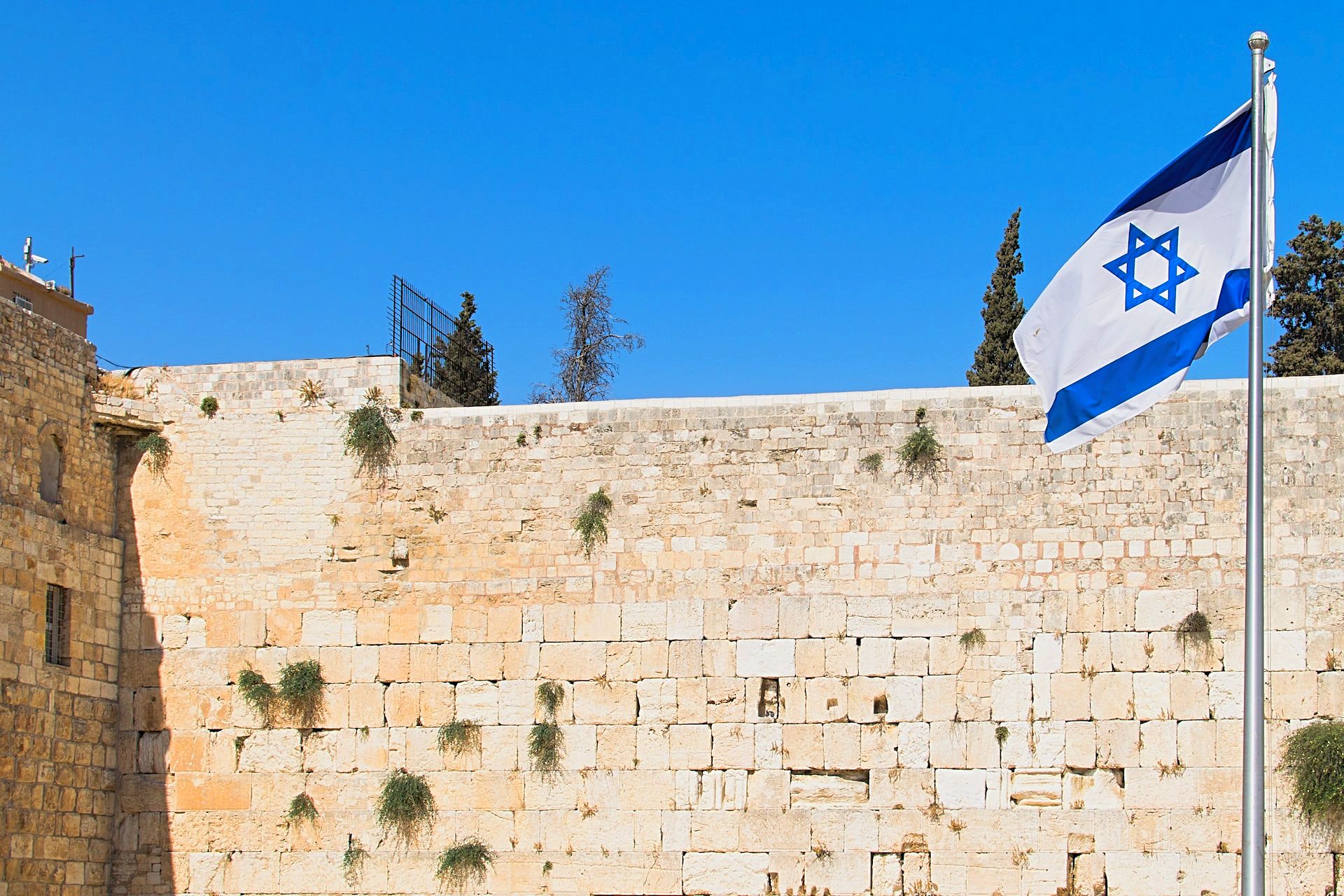
The Western Wall in Jerusalem with an Israeli flag in the foreground. Photo by Benjamin Rascoe on Unsplash
Are there any exceptions to the list of things that are forbidden on Shabbat?
Yes, - according to Jewish law (Halachah) it is not just allowed but considered mandatory to ‘break the rules’ on Shabbat if it is for the purposes of saving a life. Without a doubt, it is necessary to call a doctor or drive someone to receive medical attention, if they are taken ill on Shabbat.
And, of course, many Orthodox Jews in Israel work as doctors and nurses in hospitals. Of course, whilst they are still giving care to patients, they will still refrain from things such as using their mobile phone (unless necessary) or switching on a light (they may ask someone who is not observant to do this for them).
Another extremely interesting (and pertinent) example of violating Shabbat to save a life is of rabbis in Ukraine, recently, who spent Shabbat on the telephone in their offices. Throughout their holy day, they were busy organizing transport that would allow people in their city as quickly as possible (because of the military fighting in the vicinity).
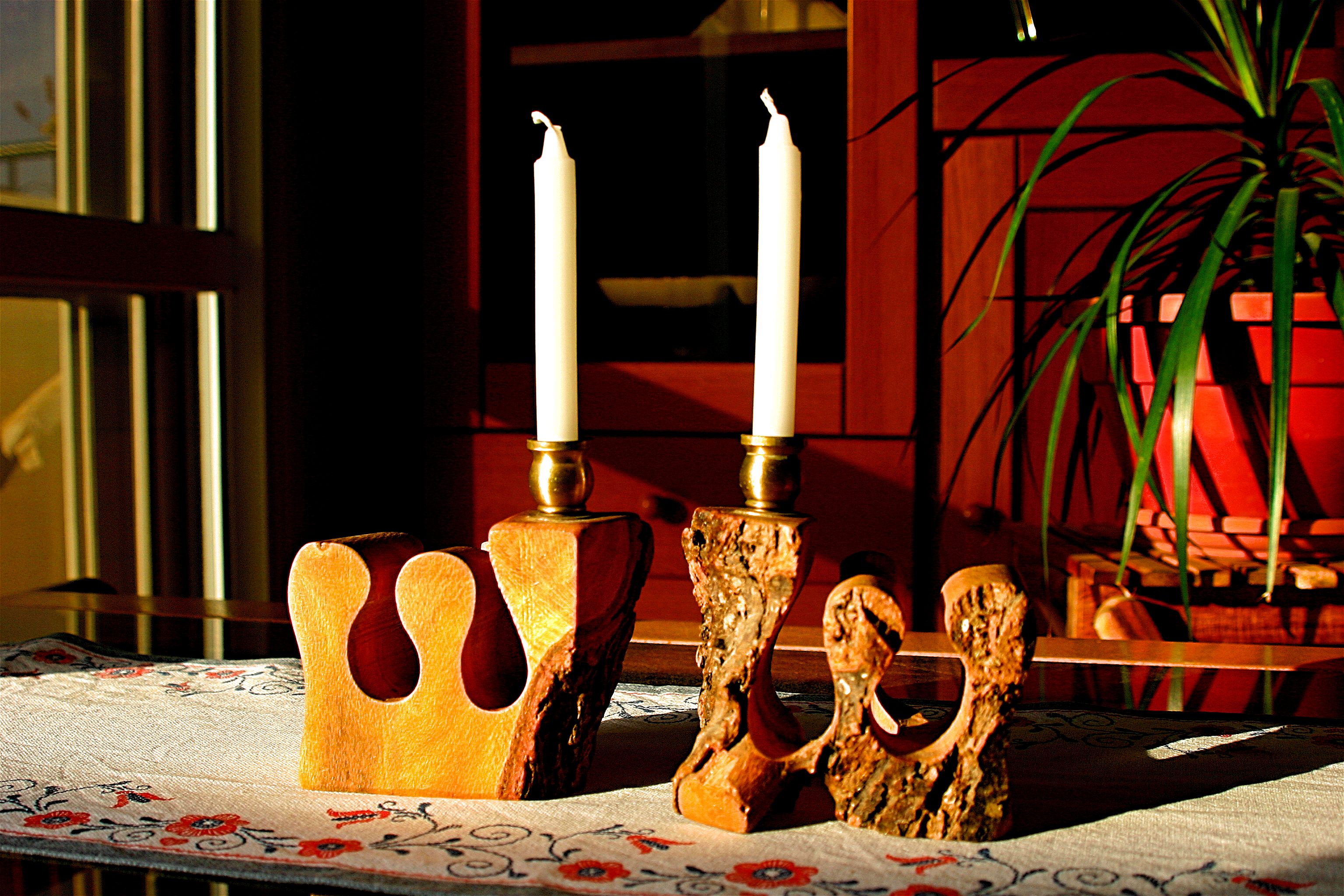
Shabbat candles. Image by @al-ex from FreeImages
What kind of activities are encouraged on Shabbat?
Shabbat, says the Hebrew Bible, is a time for relaxation, to put aside work and daily worries. It is a time to be with family and friends, to catch up with the week’s events, to read, eat, sleep, and basically wind down. Observant Jews will often take a walk in the afternoon or go and meet friends at their houses nearby.
Jews who are traditional (but do not obey all restrictions) may drive to a nature park for a hike or picnic. In Israel, secular Jews flock to the beach for much of the year. The whole point of Shabbat, essentially, is to ‘switch off’ from the world and recharge your batteries, doing whatever you enjoy most.
Are there buses and trains running in Israel on Shabbat?
Although less than half of Israel’s Jewish population observe Shabbat to the letter of the law, since the establishment of the state there have been arguments about its nature, and if public transport should be allowed on this ‘day of rest.’ In most of the country, it’s not possible to use public transport (particularly in Jerusalem, where not only will there be no buses or light railway, but you may even struggle to find a taxi driving in the main city during the day - this is where phone apps come in handy!
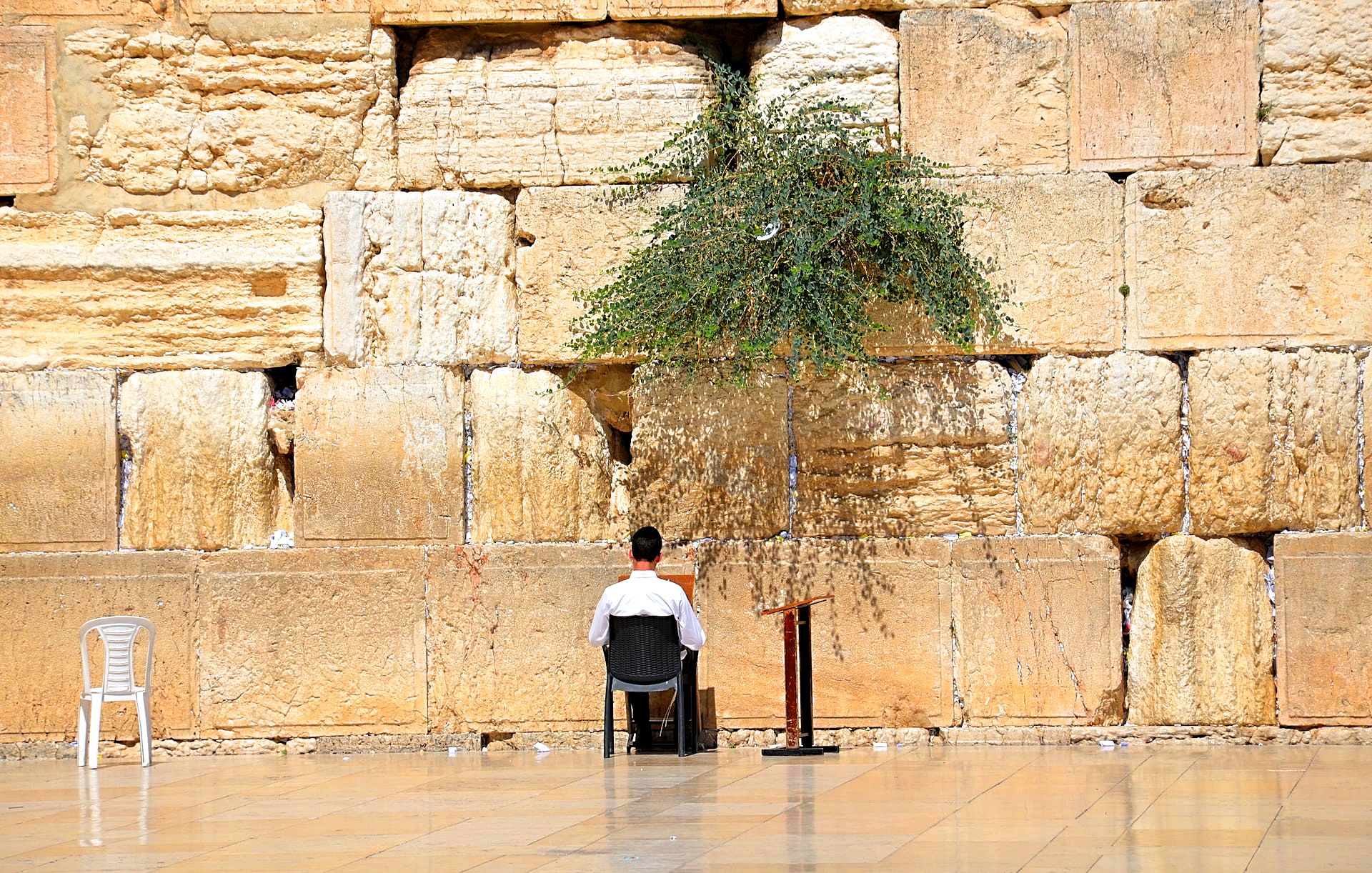
A Jewish boy praying by the Wailing Wall, Jerusalem. Photo by Jonny Gios on Unsplash
So if you are planning on making a trip over the Friday-Saturday period and you don’t have your own car, you will have to plan accordingly. However, in recent years, in cities like Tel Aviv, which are much more liberal, new initiatives have come into force, organized by the local municipality. Beginning every Friday evening - around 6 pm - and continuing until Saturday evening - six different bus lines are operational. They run out to different suburbs from the center, all passing through major roads in Tel Aviv, and - even better - they are free of charge.Unlike regular bus services, they are a little less frequent (every 20-30 minutes) but it’s a pretty effective system, for instance, if you are in north Tel Aviv and don’t want to walk all the way to Jaffa on Saturday morning (which would take 50-60 minutes) you can simply hop on a bus on Dizengoff Street and be dropped off either at the Jaffa Port or the Clock Tower, close to the Jaffa Flea Market area. The same is true if you’re staying in the suburbs of Ramat Gan and Herzliya - there are buses that will bring you straight into the center of Tel Aviv.
Are there any organized tours that run on Shabbat?
Absolutely. Whilst there are tours dedicated specifically to Jewish themes (and some of them are built around Shabbat in Israel) you can always find day trips around Israel and tour packages where exploration will continue on Saturdays. Many of our Jerusalem tours (especially walking tours in the Old City) take place every day, not to mention excursions to Bethlehem, the Dead Sea, Masada, and the Judean desert (where Bein Harim offers jeep tours for the adventurous).
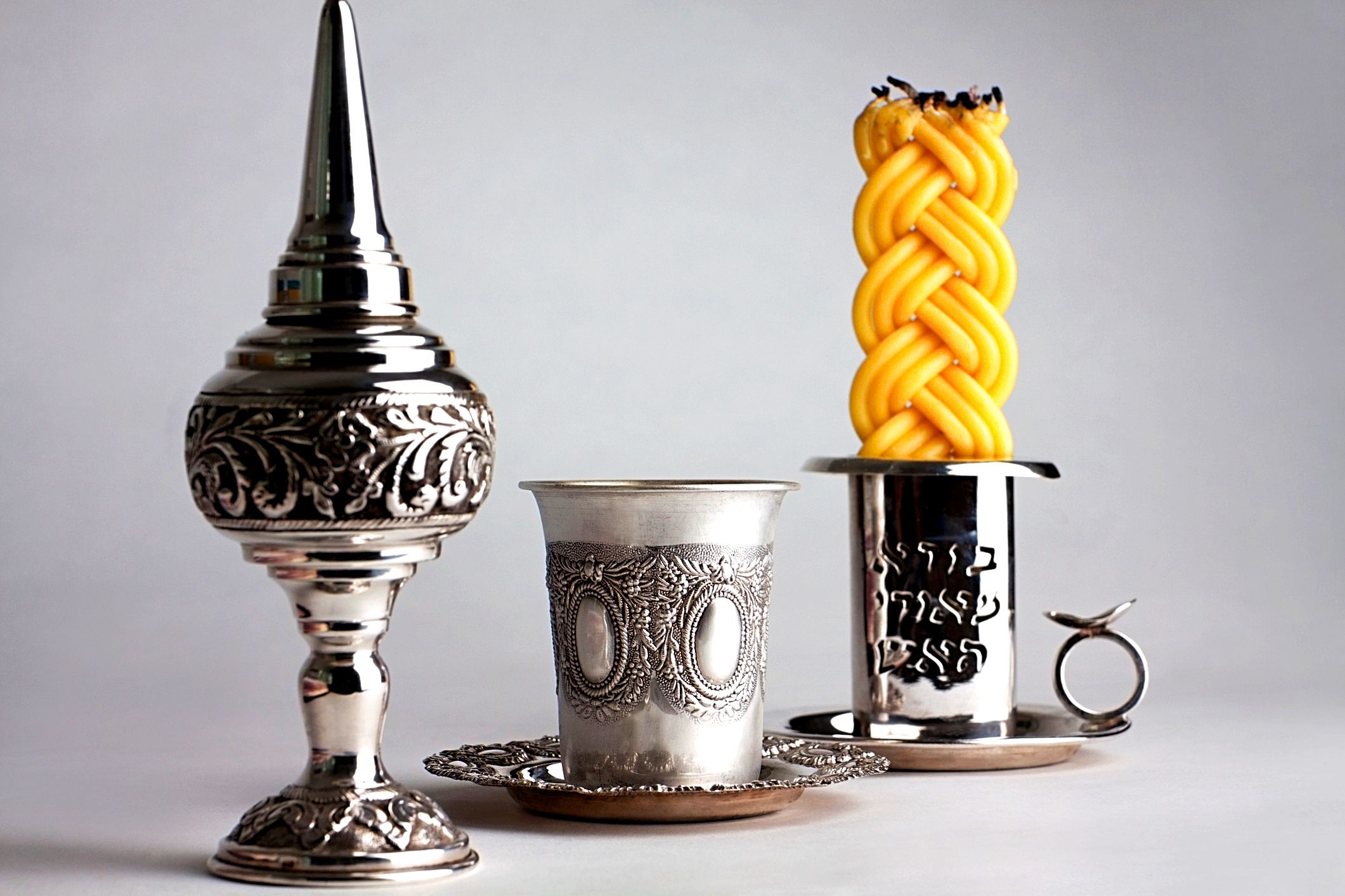
Havdalah set with kiddush cup, spice cup, and candle holder. Image by @tovfla from FreeImages
Can I attend a Shabbat service, whilst in Israel?
Again, yes. In fact, many synagogues will be happy to invite you along, whether you are Jewish or not. Of course, it might be advisable to call ahead first, just to check on formalities, but it’s quite likely that if you talk to someone in the congregation, you will also, afterward, be invited to a Shabbat meal (Israelis are extremely friendly and hospitable people!)
There are many places to attend Kabbalah Shabbat Friday night prayer services, not just in the big cities but also in small communities. Many of the synagogues have websites where you can find email addresses and if you call up, most people have a decent command of English.
Also, remember to dress appropriately according to how observant of Jewish law the community is - if it is an orthodox synagogue, a woman might be comfortable wearing a dress instead of pants. Enjoy your Shabbat in Israel and if you’d like more information about our Private Jewish Tours or Jewish tour packages around the Holy Land, don’t hesitate to contact us.
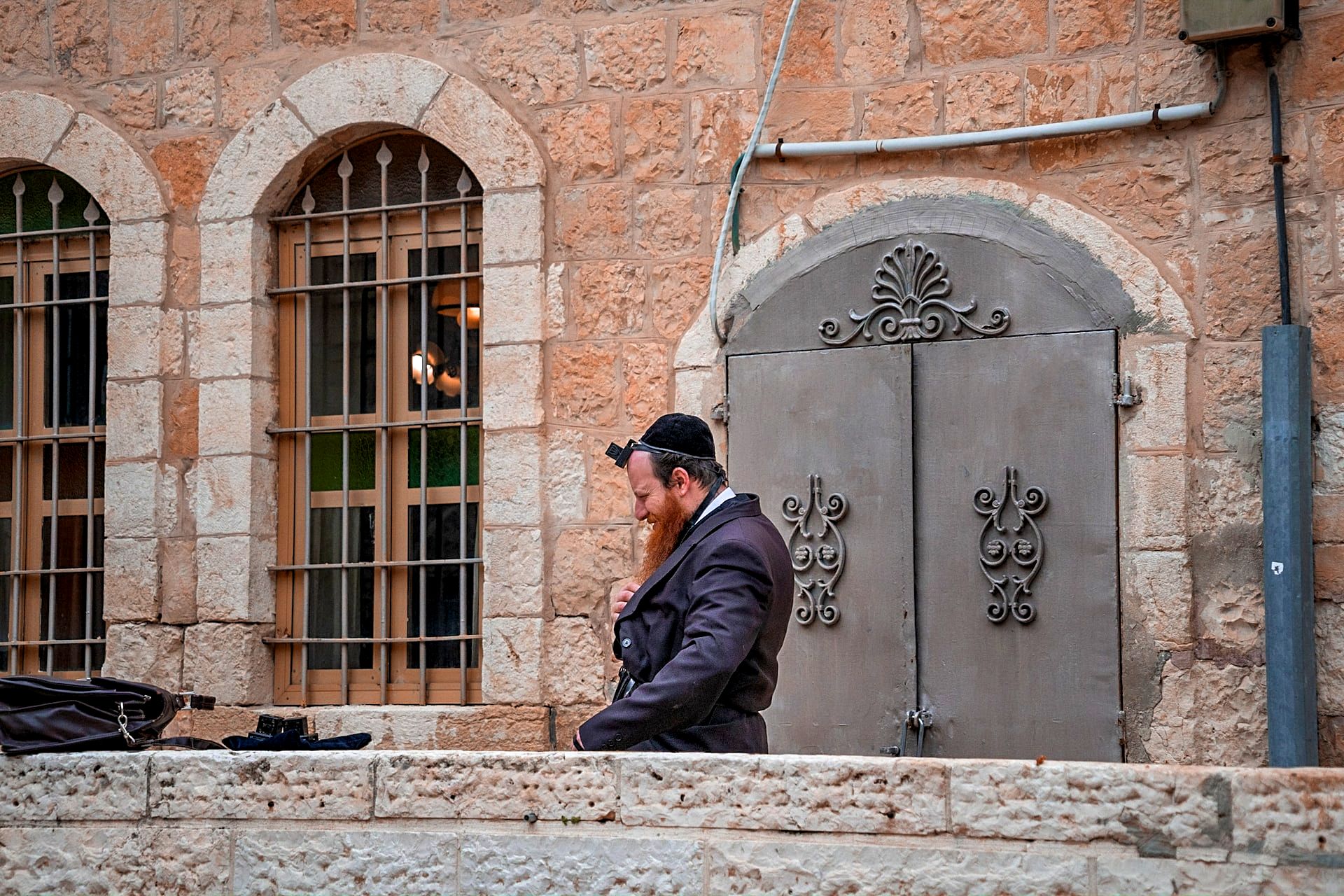
Religious Jew with tefillin on his forehead prays in the Old City of Jerusalem. Photo by Maayan Nemanov on Unsplash
 Login / Register
Login / Register
 Contact Us
Contact Us
 Certificate of Excellence
Certificate of Excellence Guaranteed Departure
Guaranteed Departure Low Prices Guaranteed
Low Prices Guaranteed 24/7 Support
24/7 Support




